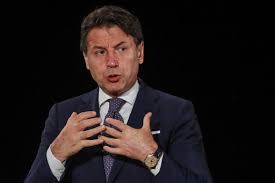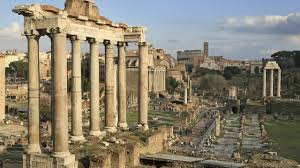Italy: Top aide to Conte wants ECB to cancel Pandemic Debt

Rome: The European Central Bank should consider wiping out or holding forever the government debt it buys during the current crisis to help nations recover and restructure, a top Italian government official said.

“Monetary policy must support member states’ expansionary fiscal policies in every possible way,” cabinet undersecretary Riccardo Fraccaro, Prime Minister Giuseppe Conte’s closest aide, said in an interview in Rome. That could include “canceling sovereign bonds bought during the pandemic or perpetually extending their maturity.”
The Italian demand reflects the nation’s deep fiscal hole as it tries to counter the crisis. It was suffering under a high debt burden and sluggish economy even before the pandemic, and Fraccaro noted further costs ahead such as the European Union’s green energy transition.
He also proposed a “green rule” that exempts public expenditures related to environmental investment from deficit calculations.
Fraccaro’s call for debt relief won’t be welcomed at the ECB’s Frankfurt headquarters though. Officials there repeatedly say they must adhere to EU law banning them from such monetary financing.
When ECB President Christine Lagarde was asked in the European Parliament last week about the possibility, she replied that “I don’t even ask myself the question — it’s as simple as that — because anything along those lines would simply be a violation” of the law. Italian Finance Minister Roberto Gualtieri has also rejected the idea.
French Finance Minister Bruno Le Maire pushed back against the proposal standing alongside Gualtieri at a press conference in Rome on Thursday and emphasized that the ECB’s existing approach underpins the financial stability of the euro area.
“A debt is paid back, that is the principle of debt,” Le Maire said. “If we are able to easily raise debt on markets today at very low rates, it is thanks to the monetary policy of the ECB.”
Fraccaro argued that the ECB could justify such a move by relying on a separate part of the EU law which obliges it to support the EU’s general economic policies, as long as that doesn’t conflict with its primary objective of ensuring price stability. He noted that the central bank has fallen short of its inflation goal of just-under 2% for years, and is now even further off because of the pandemic.
“For the central bank, it’s one thing to be independent from politicians, it’s another to not understand where the world is going,” he said. “The ECB should help countries relaunch their economies.”
Italy — with a debt load that is set to soar to around 160% of gross domestic debt after more than 100 billion euros ($119 billion) of fiscal spending to counter the pandemic crisis — is already benefiting from the ECB’s emergency stimulus.
The pandemic bond-buying program is skewed toward stressed nations, helping drive yields on Italian bonds to record lows. The nation can currently borrow for 10 years at an interest rate of around 0.6%, cheaper even than the U.S.
Yet that program is temporary, linked explicitly to the “crisis phase” of the pandemic, meaning investor pressure on the country could eventually mount again.
“Italy could be exposed to speculative investments without ECB purchases,” Fraccaro said. “The central bank should always guarantee financial stability.”
Italy has a track record of urging an overhaul of European Union institutions. Claudio Borghi, an economic adviser to the League party, called on the ECB to buy bonds to fund infrastructure projects, and to play a bigger role in stimulating sluggish economies by financing investment when his party was in power last year.
“The ECB does not have an issue with debt — it can print as much money as it wants,” Fraccaro said. “It can continue to buy sovereign bonds and allow member states to invest, protecting them from the market.





